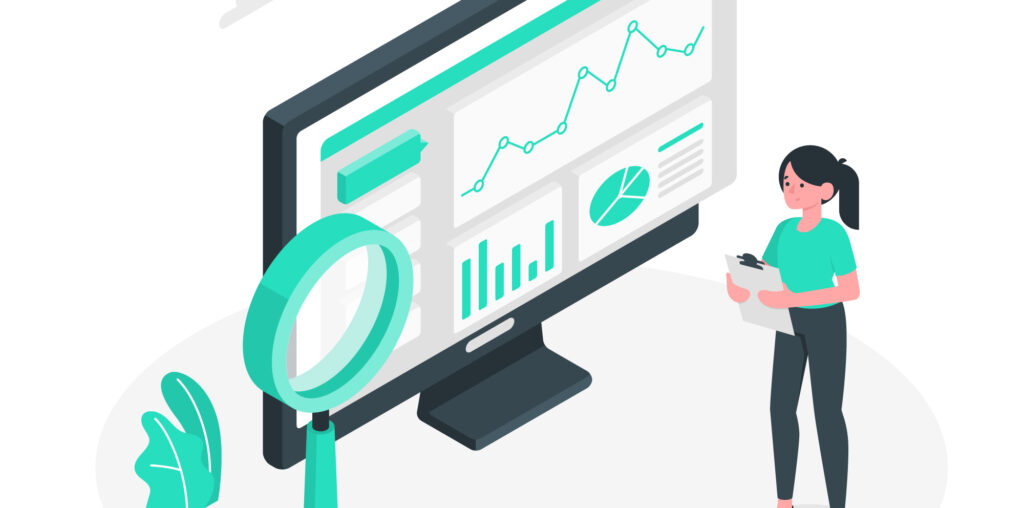Introduction to Data Collection Services
Data is often referred to as the new oil, and for a good reason. In today’s digital age, businesses are inundated with vast amounts of information. However, extracting meaningful insights from this data can be challenging without high-quality data collection services. These services play a crucial role in helping organizations gather accurate and relevant data that drives informed decision-making.
From aiding healthcare providers in improving patient outcomes to helping retailers understand consumer behavior better, effective data collection has become indispensable across various sectors. As industries increasingly rely on precise data to enhance their operations and strategies, understanding how they benefit from these services is essential.
Let’s explore the top four industries leveraging high-quality data collection services and discover why investing in robust data solutions is vital for growth and success.
Benefits of High-Quality Data Collection
- High-quality data collection services serves as the backbone for informed decision-making. It allows businesses to gain insights into consumer behavior, market trends, and operational efficiency.
- When organizations invest in superior data collection methods, they enhance accuracy and reliability. This leads to better strategic planning and resource allocation.
- Additionally, high-quality data helps identify potential risks early on. By analyzing accurate information, companies can pivot quickly in response to changing circumstances.
- Moreover, precise data fosters innovation. With solid insights at their fingertips, teams can develop new products or improve existing services based on real user feedback.
- Effective data collection promotes transparency within an organization. Stakeholders trust the findings when they are backed by reliable sources of information.
Healthcare Industry and Data Collection
The healthcare industry relies heavily on accurate data. Patient records, treatment outcomes, and demographic information all play crucial roles in improving care quality.
Data collection services empower healthcare providers to gather vital statistics seamlessly. This leads to better diagnostics and personalized treatments tailored to individual needs.
Timely data also enables research into new therapies and medications. Hospitals can monitor trends in patient health more effectively, leading to early interventions.
Moreover, compliance with regulations becomes easier with organized data collection systems. These services ensure that sensitive information is handled securely while meeting legal requirements.
As technology advances, the integration of AI and machine learning into data collection will further enhance analysis capabilities. The potential for predictive analytics could revolutionize how healthcare professionals address emerging health issues.
Retail Industry and Data Collection
The retail industry thrives on understanding customer behavior. Data collection services play a pivotal role in grasping these insights.
Retailers utilize various methods to gather data—surveys, loyalty programs, and online tracking. This information helps brands tailor their offerings. Personalized marketing becomes more effective when backed by solid data.
Inventory management also benefits immensely from high-quality data collection. Knowing which products are popular allows retailers to optimize stock levels and reduce waste.
Furthermore, analyzing consumer trends enables businesses to adapt quickly. Whether it’s seasonal preferences or emerging styles, timely adjustments can lead to increased sales.
The integration of advanced analytics tools enhances decision-making processes within retail operations. The right data empowers retailers not just to react but also to anticipate market shifts effectively.
Finance Industry and Data Collection
- The finance industry thrives on data. Accurate and timely information is crucial for decision-making, risk management, and customer relationships. Financial institutions rely heavily on high-quality data collection service to gain insights into market trends and consumer behavior.
- Data collection enables banks to assess creditworthiness effectively. They analyze historical financial data, ensuring that lending decisions are sound and secure. This minimizes risk while optimizing the loan approval process.
- Investment firms utilize data to identify lucrative opportunities in real-time. By capturing large volumes of market data, they can make informed trading decisions quickly.
- Additionally, regulatory compliance necessitates meticulous record-keeping. Data collection services help ensure adherence to regulations by maintaining accurate transaction records and reporting requirements.
- In this fast-paced environment, leveraging advanced analytics from collected data gives financial companies a competitive edge. The ability to predict shifts in the market or customer preferences sets successful organizations apart from their competitors.
Government Sector and Data Collection
The government sector is increasingly turning to data collection services to enhance decision-making and improve citizen engagement. With vast amounts of information generated daily, agencies need reliable data to create effective policies.
High-quality data allows for better resource allocation, ensuring that funds are directed where they are most needed. It helps identify trends in public health, crime rates, and infrastructure needs.
Moreover, transparency has become a priority for governments. By utilizing robust data collection methods, agencies can provide citizens with accurate information about their operations. This fosters trust and accountability within communities.
Additionally, real-time analytics enable swift responses during emergencies or natural disasters. Government bodies can assess situations on the ground quickly and implement measures more effectively based on solid evidence rather than assumptions.
Future of Data Collection Services
The future of data collection services is poised for remarkable evolution. Advancements in technology are driving new methods and tools that enhance efficiency and accuracy.
Artificial intelligence plays a pivotal role, enabling smarter algorithms to analyze vast datasets swiftly. This leads to more informed decision-making across various industries.
Additionally, the rise of IoT devices means real-time data acquisition is becoming standard practice. Businesses can gather insights instantly, allowing them to adapt quickly to market changes.
Privacy concerns will continue shaping regulations around data collection practices. Companies must prioritize transparency and ethical standards while harnessing these powerful resources.
As we move forward, integrating machine learning with traditional collection techniques will open doors to deeper analytics. Organizations that embrace these innovations will gain a competitive edge in their respective fields.
Conclusion
Data collection services are becoming essential across various sectors. As industries evolve, the demand for accurate and high-quality data continues to grow. Healthcare professionals rely on precise data for patient care improvements and research advancements. The retail sector benefits from customer insights that drive sales strategies and inventory management.
In finance, dependable data supports risk assessment and investment decisions, while government agencies utilize it for policy formulation and public service enhancement.
Looking forward, the importance of these services will only increase as businesses strive to leverage big data analytics effectively. Adopting advanced technologies in data collection will open new opportunities across all fields. Embracing high-quality data is not just a choice; it’s a necessity for any organization aiming to thrive in today’s competitive landscape.


